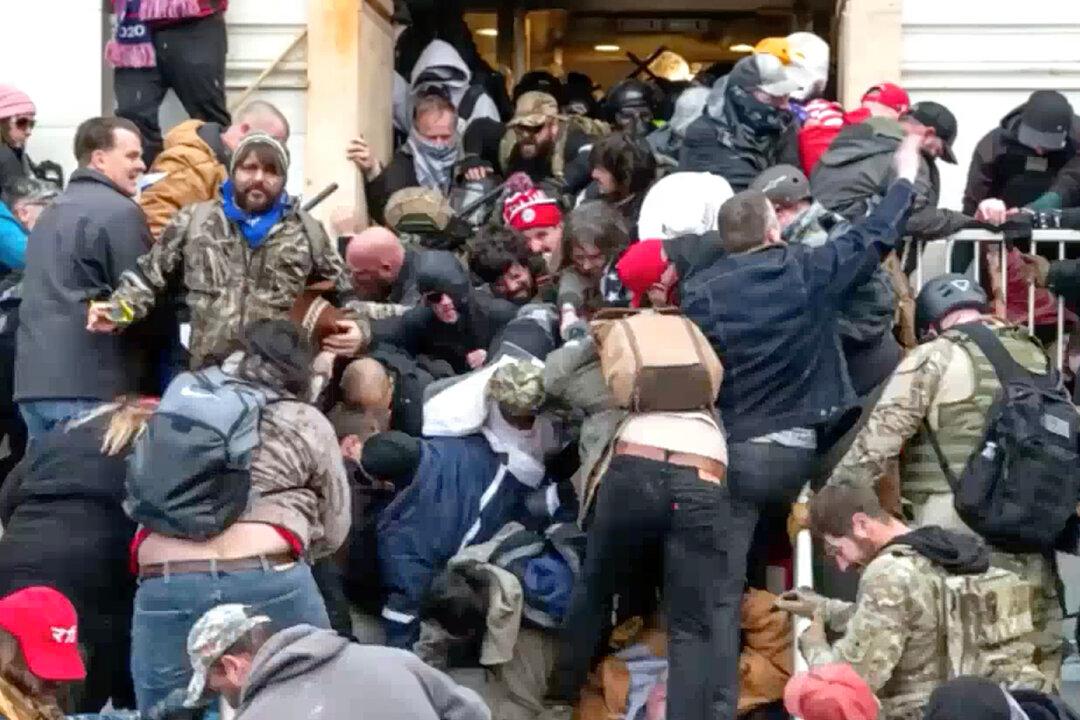The defense attorney for a member of the Oath Keepers charged with seditious conspiracy stemming from the U.S. Capitol unrest on Jan. 6, 2021, has filed a motion to intervene in a lawsuit that seeks to compel the U.S. Capitol Police to release more than 14,000 hours of video from surveillance cameras, smart phones and police body-worn cameras.
Jonathon Moseley, who represents Oath Keeper Kelly Meggs of Dunnellon, Florida, seeks to intervene in Judicial Watch Inc. v. U.S. Capitol Police, a 2021 lawsuit that aims to unmask most of the Jan. 6 video footage now hidden from the public by court seal.





